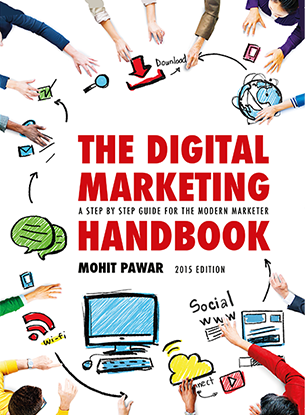From Business 2.o website. This article is penned by Paul Kaihla. Paul (pkaihla@business2.com) is a senior writer at Business 2.0.
Some key takeways are listed below.
………..
………..
So where can you get your copy? Until now, you had to know an insider to learn the unwritten rules. We got our hands on the book, though, and asked Swanson to elaborate on a dozen of the best parts. It took the better part of a lifetime to get these thoughts on paper, but at last his secret rules are accessible to the rest of us.
› My apologies to those who cherish their sneakers, but my point is that even if you polish a hollow shell, it’s still nothing more than a hollow shell. When I was growing up, we used white Kiwi polish to make our sneakers look new, but no matter how hard we tried, an ugly sneaker remained an ugly sneaker. Now when I see a briefing that’s heavy on style but short on substance or focus, I say, “You’re not gonna be able to polish that sneaker.” It’s a polite way of saying you haven’t started out with anything meaningful. Trying to polish a sneaker can actually be dangerous, because it may inadvertently convince others that the sneaker has a value that it doesn’t really possess. This can lead organizations down unproductive dead ends.
› How many times have you been in a meeting with someone who felt compelled to contribute, even though he obviously had no idea what he was talking about? In those circumstances, silence is golden. As a CEO, you know that everyone wants to impress you, so I sometimes ask a question to which I already know the answer as a way to test someone’s character. Confident people know their strengths and weaknesses, and they don’t try to b.s. you. You are not expected to know the answer to everything. Smart people simply say “I don’t know” — and go get an answer.
› If a parent tells a young child not to touch a lightbulb, the child generally won’t remember. But after the first time he touches a lightbulb, he’ll never forget that it’s hot. A leader needs to communicate in a way that makes people feel what they need to do. I was reminded of this a couple of years ago during a visit to Nellis Air Force Base. I introduced myself to a pilot, and he looked me in the eye and said, “If it wasn’t for what you all do, I wouldn’t be here today.” A missile had been launched at his F-15, but we make a decoy, which he deployed. The decoy didn’t come home — but he did, to his family. I use that feeling to remind everyone that people’s lives depend on the reliability of our products.
› This is one of my favorites. It hit me in the middle of the night. It isn’t an obvious lesson; it only came to me later in my career. When people look at a design or a problem, they’re good at refining the details — it’s human nature to focus on what’s in a presentation. But sometimes what isn’t there is even more important. This idea becomes especially critical as you take on more responsibility, because it speaks to the importance of strategic thinking.
› I learned this in the 1970s — long before e-mail. I’d graduated from Cal Poly San Luis Obispo and was working on antennas and microwave assemblies at Raytheon’s Santa Barbara facility. We had a manager and seven young engineers on the team, so we were called Snow White and the Seven Dwarfs. I was one of the dwarfs. One of the others wrote a complaint to a supervisor outside the team, and cc’d the world on his letter. That made a lot of people angry — it was a big mess. With e-mail, of course, this problem has only gotten worse. If you have a complaint, take it directly to the relevant individual, privately and professionally, to give him or her a chance to work it out. You’ll lose respect if you write one of these cc’d zingers, and, even worse, that kind of behavior sucks the energy out of an organization. Conflict adds no value.
› My father always said, “You were given a good name when you came into this world; return it the way you got it.” A company’s reputation is built on the actions of each employee. I spend a lot of time emphasizing ethics and integrity, but I humanize those issues by asking people to treat the Raytheon name the same way they do their family name. Anyone who would bring embarrassment to our name should find work somewhere else.
› We all spend plenty of hours at work. It’s much more pleasant to spend those hours with people who have a bounce in their step and a smile on their face than with those who mistakenly associate professionalism with a dour disposition. I don’t like being around depressing people because they make me depressed. The best managers give of themselves by having fun at what they do — and I look for that in those around me.
› This is analogous to how much smarter my mom and dad suddenly seemed when I emerged from my teenage years and found myself in my 20s. When you see the world from a higher perch, you take in more of the landscape. In 1984, I was put in charge of 7,000 people at a missile facility in Massachusetts. Before that, I’d been in smaller, more individual roles where I could get my arms around the whole job and do most everything myself. Making the leap to leadership means learning to delegate. You receive inputs, and you make decisions. You find out how brilliant your boss really was when you follow him or her into a position. I may have criticized my bosses once or twice, but when I got their jobs, I generally found that they’d made the best decisions they could have with the facts they had at hand.
› When someone assumes a position of responsibility for the first time, it’s common to avoid decisions — and the risk of criticism. But that only creates different risks. Problems are not like wine and cheese; they don’t get better with age. In 1998 we undertook the largest rationalization in the history of our industry. We closed a third of the company’s square footage and let go more than 25 percent of our 90,000 workers. We had five missile plants. We now have one. I know that many people were hurt by the consolidation. But if we hadn’t done it, Raytheon might be out of the missile business today. Instead, we’ve become a $20 billion powerhouse.
When something appears on a slide presentation, assume that the world knows about it and deal with it accordingly.
› When people assure you that proprietary or confidential information you are looking at on the screen will never leave the room, assume that it already has. In fact, you should assume that it will be published in the New York Times, the Los Angeles Times, or the Washington Post. My first experience with this was a funny one involving a small local paper. The roof of our Andover, Mass., plant was resurfaced with a white membrane. It must’ve reminded seagulls of a beach, because they liked to leave garbage up there. My guys showed me a slide presentation that included a picture of a dead seagull in the report. Twenty-four hours later, it showed up in the local newspaper. They claimed that we were poisoning seagulls, which wasn’t true. It taught me a valuable lesson: Always assume that the four or five people briefing you have already talked to four or five people — and that the circle of people in the know already includes at least 40 others.
› Watch out for those with situational value systems — people who turn the charm on and off depending on the status of the person with whom they’re interacting. Those people may be good actors, but they don’t become good leaders. There’s a consistency in leadership that’s greater than mere situational awareness. I was reminded of this recently while dining at a high-end restaurant with several other CEOs. One guy’s meal didn’t come out right, and he decided to take the waiter down a peg or two. The poor server didn’t prepare the food — he simply carried it from the kitchen! I looked across the table and thought, “What the hell is this guy trying to prove?” He was trying to show who was in charge, but really he was just being an ass.
› This metaphor comes out of my engineering training. “Shorting issues to ground” means finding the quickest path from problem to solution. If you sense that your organization is spending more time on the bureaucracy of problem-solving than on actually solving problems, it’s time to simplify the process. This came up when my division was developing the Patriot air defense system in the 1980s. We were having problems with the radar, and there were lots of meetings and reports but no solutions. I shorted the issue to ground by going down to the shop floor and talking to the people who had soldering irons and circuit boards in their hands. In the end we were able to eliminate weeks from the product’s test cycle.


